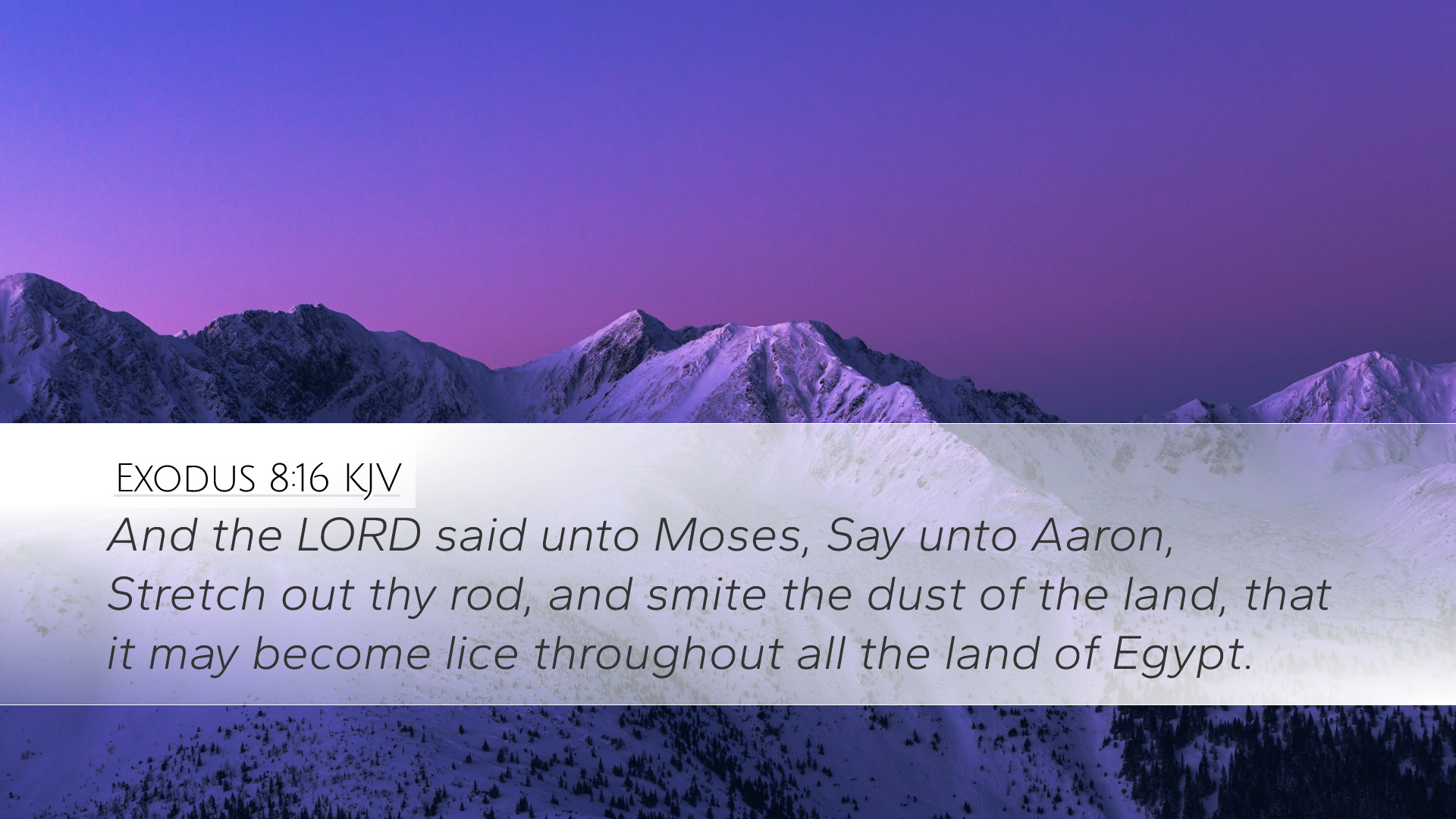Exodus 8:16 Commentary
Verse Context: Exodus 8:16 states, “Then the LORD said to Moses, ‘Say to Aaron, “Stretch out your staff and strike the dust of the earth, and there shall be gnats throughout all the land of Egypt.”’” This verse is part of the series of plagues that God brought upon Egypt to demonstrate His power and convince Pharaoh to release the Israelites from bondage.
Theological Significance
Divine Authority over Creation: This passage reinforces the theme of God's sovereignty over creation. By turning dust into gnats, God demonstrates that every element of creation is under His command. Matthew Henry emphasizes that even something as mundane as dust is utilized by God to fulfill His purposes, showcasing His power and omnipotence.
The Instrument of Judgment: Albert Barnes notes that the use of Aaron's staff in this plague exemplifies the means through which God's judgments are executed. The staff, a symbol of authority and divine appointment, is instrumental in demonstrating God’s power over the natural order, creating a significant dichotomy between the power of God and the impotence of Egyptian magicians who could not replicate this miracle.
Application for Today
The plague of gnats, as described in Exodus 8:16, serves as a reminder that God can work through the simplest elements of life to achieve His purposes. Believers today can find assurance in God's ability to use ordinary circumstances to bring about His will. Adam Clarke reminds us that in moments of distress, it is often through seemingly trivial events that God manifests His presence and helps His people.
Historical Context
Examining the historical backdrop, the plagues were not just random acts of disruption but were specifically targeted against the Egyptian gods. The Egyptians worshipped various deities connected to nature, and God’s plague of gnats sought to dismantle the belief in these idols by showcasing His supremacy. Henry points out that the very dust of the earth, which Egyptians viewed as a base element, becomes the source of a supernatural judgment. This serves as a direct challenge to their theology.
The Plague of Gnats
- Symbol of Sin: Gnats can represent irritations or offenses. Just as gnats are bothersome and persistent, so too is sin in the life of an individual or a community.
- Judgment Yet Opportunity: The plague serves as judgment but also as an opportunity for Egypt to recognize the one true God. Even in divine judgment, God's character as merciful is evident.
- A Lesson in Humility: The inability of the magicians to replicate this miracle (Exodus 8:18-19) illustrates the limitations of human power. It calls for humility in acknowledging God's supremacy.
Reflections for Leaders
For pastors and leaders, this passage invites reflection on the methods by which God might be calling for leadership today. Strong leadership recognizes that God's power is often manifested in unexpected ways. Church leaders are encouraged to be attentive to the 'gnats' around them: the small, persistent issues that may indicate a larger problem in the faith community.
Conclusion
In summary, Exodus 8:16 is a rich text that offers profound theological insights and practical applications. It speaks to the divine sovereignty over creation, the futility of human power in the face of God's authority, and the importance of recognizing God's active presence in seemingly trivial matters. As we navigate our roles as ministers, students, and scholars, we are reminded to be vigilant of the lessons God teaches us through all aspects of life, no matter how small or insignificant they may appear.


